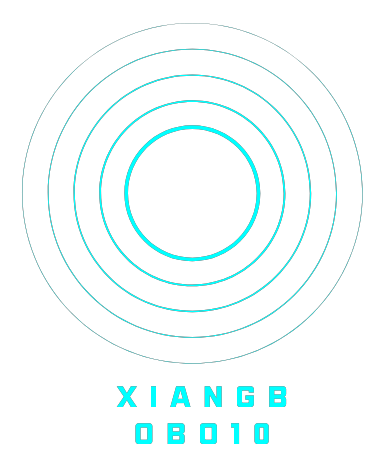The world of online casinos has grown exponentially over the past few decades, revolutionizing the way people experience gambling. One of the core aspects that has evolved during this transition is the concept of house odds — the statistical advantage the casino holds over the player. In this blog post, we will explore how house odds have evolved in online casinos tỷ lệ kèo nhà cái, how they differ from traditional casinos, and what players should know to maximize their chances of winning.
What Are House Odds?
House odds refer to the built-in advantage that a casino has over its players in any given game. For example, in a game of roulette, the presence of a “zero” or “double zero” on the wheel gives the house a statistical edge over the player. These odds are typically expressed as a percentage and are designed to ensure that the casino remains profitable in the long run.
In most games, players can try to reduce the house edge by adopting specific strategies or by choosing games that inherently offer lower house odds. However, even with perfect strategy, the odds are always slightly tilted in favor of the casino.
Early Online Casinos: High House Edges and Limited Game Variety
When online casinos first emerged in the mid-1990s, they were relatively simple, offering only a small selection of games like blackjack, roulette, and slot machines. In these early days, online casinos adopted house odds similar to those found in traditional, land-based casinos.
The house edges were often larger than they needed to be for a few key reasons:
- Lack of Regulation: Many of the early online casinos were operating in an unregulated environment, leading to unfair or overly aggressive odds designed to maximize profit.
- Limited Competition: The online gambling market was new, and there weren’t many players or platforms, so there was little pressure to offer competitive odds. http://cartagenadeley.com
- Technology Constraints: Online platforms were in their infancy, and game developers didn’t have the tools or experience to fine-tune odds as they do today.
At the time, house edges in online casinos were often higher than in traditional brick-and-mortar casinos, which made it harder for players to win. The software was still evolving, and there were fewer mechanisms in place to track or manage house advantage across a variety of games.
Technological Advancements and the Push for Fairness
As technology advanced in the early 2000s, online casinos began to evolve in response to customer demands for fair play and better odds. Several factors drove this change:
- Increased Competition: The growth of online gambling led to an explosion in the number of operators. To stand out, casinos started offering more competitive odds, promotions, and bonuses to attract players.
- Random Number Generators (RNGs): One of the key developments in online casinos was the widespread implementation of Random Number Generators (RNGs), which ensured that game outcomes were random and not rigged. This helped establish trust between players and operators.
- Regulation and Licensing: As the online casino industry matured, various regulatory bodies, such as the UK Gambling Commission and the Malta Gaming Authority, began overseeing operations. These regulations required casinos to adhere to strict standards of fairness, including ensuring that house odds were clearly stated and transparent.
- Introduction of Skill-Based Games: Skill-based games, such as video poker, started to gain popularity in online casinos. These games, which reward player decisions and strategies, typically offer lower house edges than games based purely on luck.
As a result of these developments, house odds in online casinos began to resemble those in traditional casinos. The house edge for many games, such as blackjack, baccarat, and roulette, became more consistent with land-based casinos, and in some cases, even more favorable to players.
The Rise of Live Dealer Games
One of the most significant innovations in the online casino space in the past decade has been the rise of live dealer games. These games, which are streamed from real casinos or studios, offer players the opportunity to interact with real dealers in real-time.
Live dealer games have become an essential part of the online casino experience for several reasons:
- Authenticity: They provide the feel of a brick-and-mortar casino, with a human dealer and an actual deck of cards or roulette wheel.
- Transparency: Players can watch the dealer in real-time, helping them feel more confident about the fairness of the game.
- Lower House Edges: Some live dealer games, particularly blackjack and baccarat, often have lower house edges than their RNG counterparts due to the ability for dealers to perform tasks like shuffling or dealing cards in a more controlled environment.
These games offer a more immersive experience, and as they have grown in popularity, many online casinos have adjusted their odds to keep them competitive. With real dealers and high-quality streaming, many players feel that the house edge is more manageable in these live settings compared to purely computer-generated odds.
Game Variety and Player Preferences
In today’s online casinos, players have access to a staggering variety of games, and this has had a significant impact on house odds. Game developers are constantly innovating, creating new game types with varying odds structures. These games can have house edges that range from less than 1% to as high as 15% or more.
Slots are a prime example of this variety. While the house edge in traditional slots typically ranges from 3% to 5%, newer “progressive jackpot” slots may have a higher house edge due to the potential for massive payouts. On the other hand, classic table games like blackjack, baccarat, and video poker still feature relatively low house edges, with blackjack often offering one of the best odds in the casino when played with optimal strategy.
Players today have the advantage of choosing the type of game they prefer based on their risk tolerance. Those looking for low house edges can stick to skill-based games or traditional table games, while those in pursuit of bigger jackpots might opt for higher-variance slot machines with higher house edges.
The Future of House Odds in Online Casinos
As technology continues to improve, the future of house odds in online casinos looks promising. Here are a few trends to keep an eye on:
- AI and Machine Learning: Advanced algorithms are being used to create more sophisticated games, adjust odds, and improve player experience. Machine learning could potentially be used to offer dynamic odds, adjusting based on player behavior or even offering personalized odds for each player.
- Crypto Casinos: With the rise of cryptocurrency, new online casinos are emerging that cater specifically to digital currency users. These casinos often tout lower fees and faster payouts, but the house edges can vary depending on the game and platform.
- Gamification: As online casinos compete to capture the attention of players, we may see more gamified experiences with bonus rounds, loyalty programs, and interactive features that adjust odds or offer bonus opportunities to players.
- More Fairness and Transparency: Given the increasing regulation and the demand for transparency, it is likely that online casinos will continue to refine their odds and practices, ensuring a more equitable experience for players.
Conclusion
The evolution of house odds in online casinos has been influenced by a variety of factors, including technological advancements, increased competition, and stronger regulations. While the house always holds an edge in gambling, players now have more opportunities than ever to make informed decisions about the games they play. By understanding how house odds work and choosing games with favorable odds, players can enhance their chances of success and enjoy a more rewarding online casino experience.

